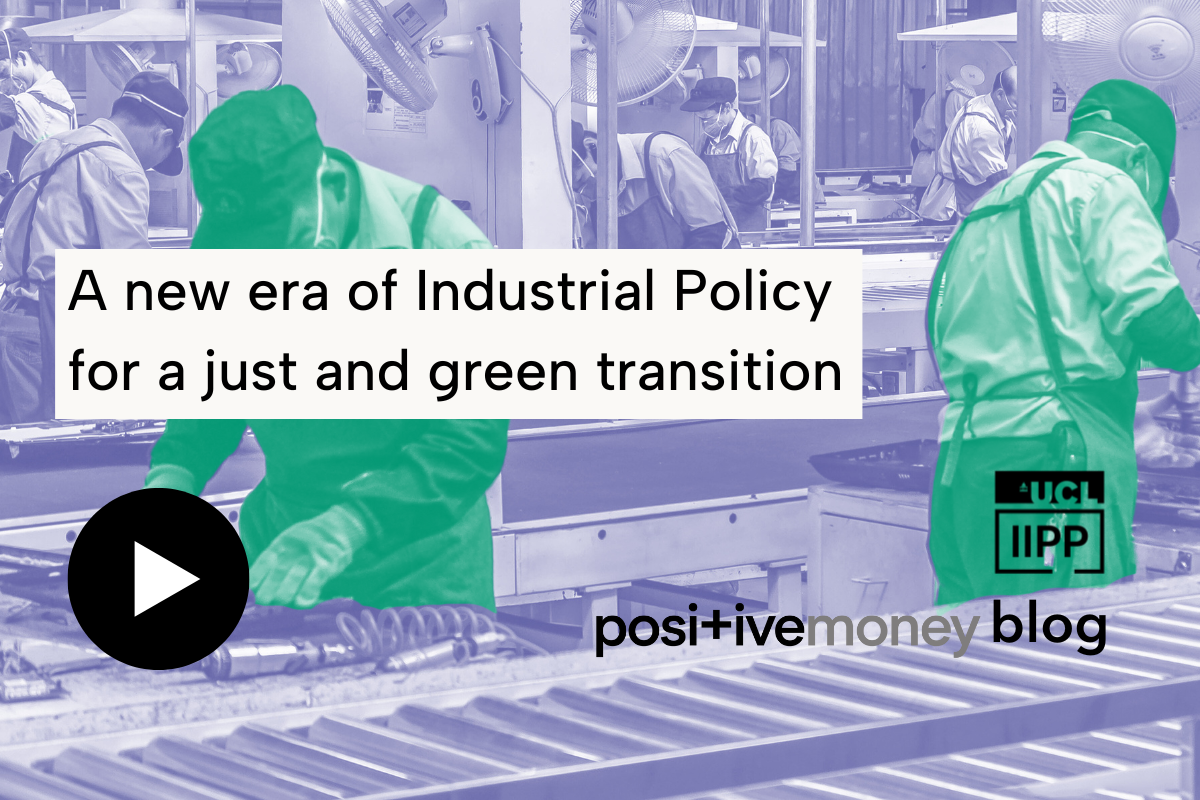
The future of moneyGlobal
2 December 2025
The third in our series of four panel discussions on the topic of ‘Can progressive macroeconomic policy for a just transition work domestically and internationally?’
Since the 2008 crisis, many leading thinkers have called for a new economic settlement. Central bank power has expanded with little accountability, with different kinds of economic policy (like monetary and fiscal) pulling in opposite directions. The ecological crisis, intersecting with new kinds of crises in the financial sector, price instability, rampant inequality within and between countries, and social and political unrest, makes establishing a new macroeconomic regime an even more urgent task.
Across two days in June, jointly with UCL’s Institute for Innovation and Public Purpose (IIPP), we brought together experts and civil society representatives to discuss what a macroeconomic framework for a just transition would look like, at national and international levels. Watch the third discussion below.

The discussion on industrial policy asked what we can learn from the recent embrace of green industrial strategies around the world, how these policies can be most effective, and what the implications would be of industrial policy shifts in the Global North for Global South countries, and vice versa.
Melanie Bruessler is a Senior Researcher at Common Wealth think tank, working to advance democratic ownership and democratic planning—the “green mixed-economy”—as essential. She proposed a green “mixed ownership” economy involving the decommodification of critical sectors like electricity by bringing them into public hands. She argued that this is the only way to transform our economies quickly enough to avert the worst consequences of climate breakdown.
Dr Amir Lebdioui is Associate Professor of the Political Economy of Development at the University of Oxford and Director of the Oxford Technology & Management Centre for Development (TMCD). He argued that most green industrial plans would hope to achieve three things: environmental objectives, new jobs, and growth. But although these are often presented as complementary, there are also tensions between them, especially when countries compete to do them at the same time. Industrial strategies in the Global North have become a competitive race to develop green technologies, but this makes green technologies expensive for others and hinders Global South countries from furthering their own green transition strategies.
Olga Mikheeva is currently Research Fellow in Political Economy and the Green Transition at the Copenhagen Business School, a Honorary Senior Research Fellow at UCL IIPP and a research associate at CIRCLE - Center for Innovation Research, Lund University. She pointed out that a progressive take on industrial development must include the peripheries of the Global North – such as the asymmetries between East and West Europe – as well as the Global South.
Despite the recent interest in industrial policy in the United States and elsewhere, patterns of accumulation and ownership have been left unchallenged, and the state’s governing role in industrial policy remains under-resourced. Unfortunately, a lot of “industrial policy” promoted in the Global South is actually to support Global North decarbonisation – such as the hydrogen industry developing in parts of Africa – rather than to support domestic needs. The panel highlighted the need for a positive vision of cooperative developmentalism towards global goals.
Catch up on the first and second panel discussions, and look out for the final video in the series on our YouTube playlist here.
___
Sign-up to our mailing list for regular updates, or donate to support our work to redesign our economic system for social justice and a liveable planet.
